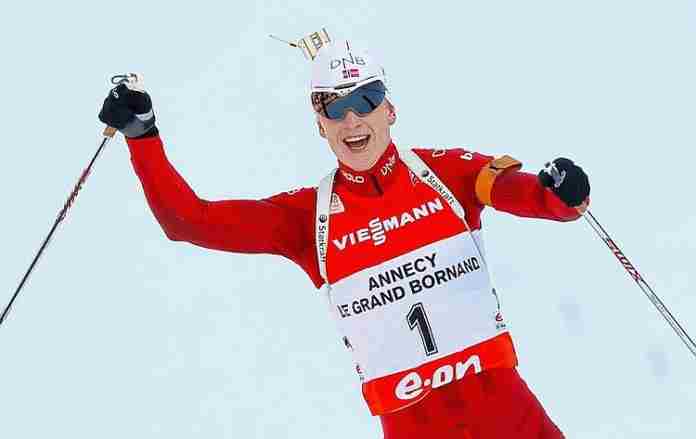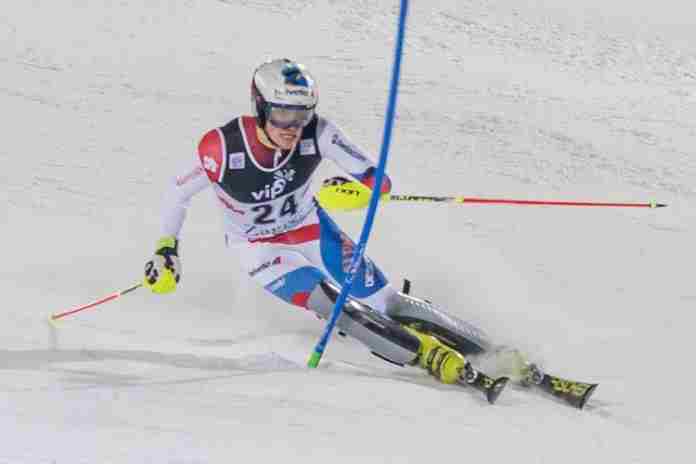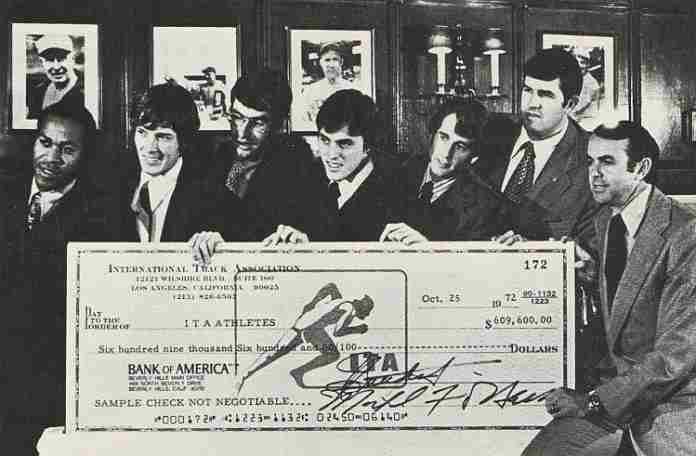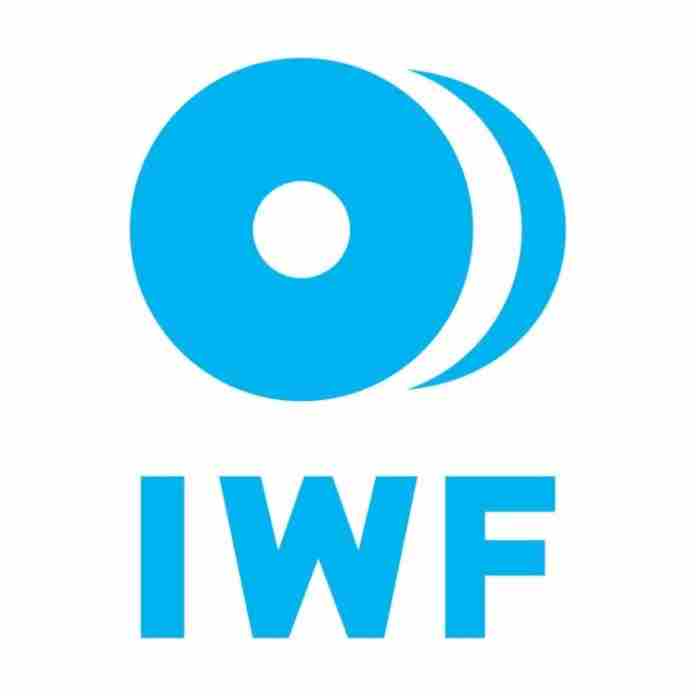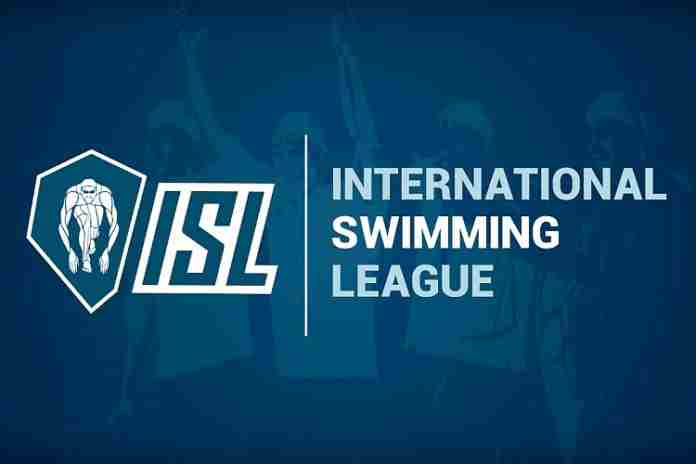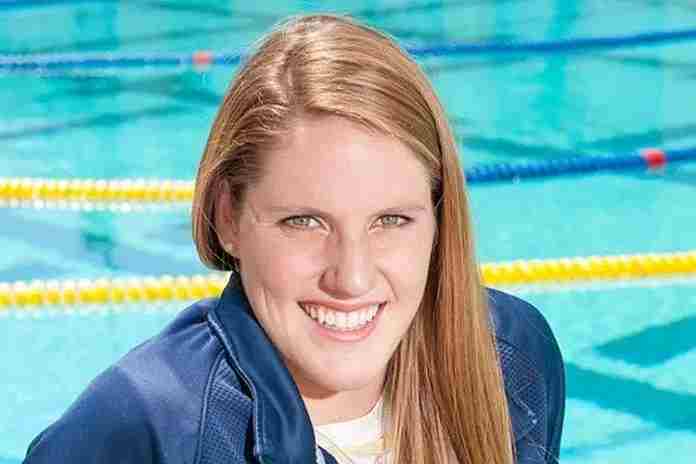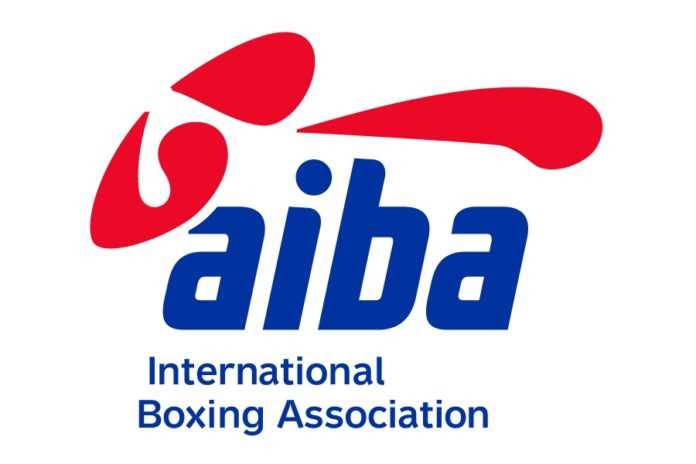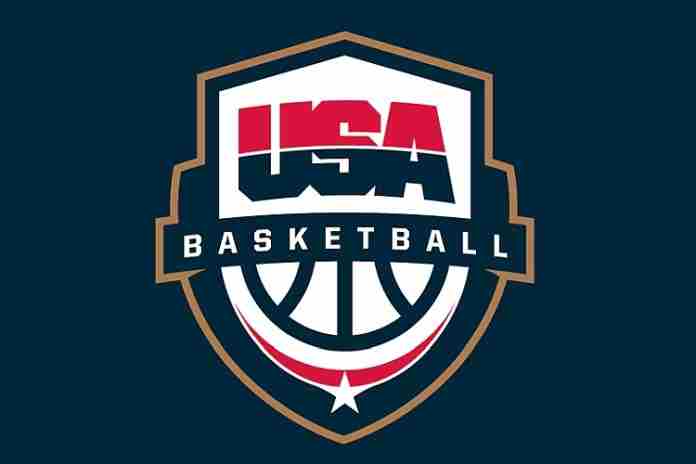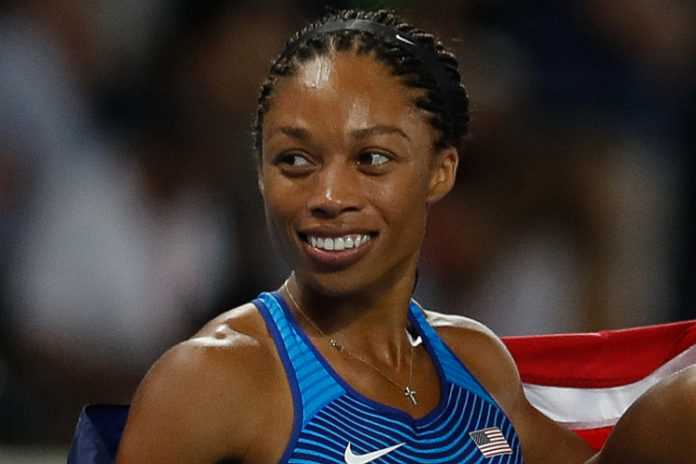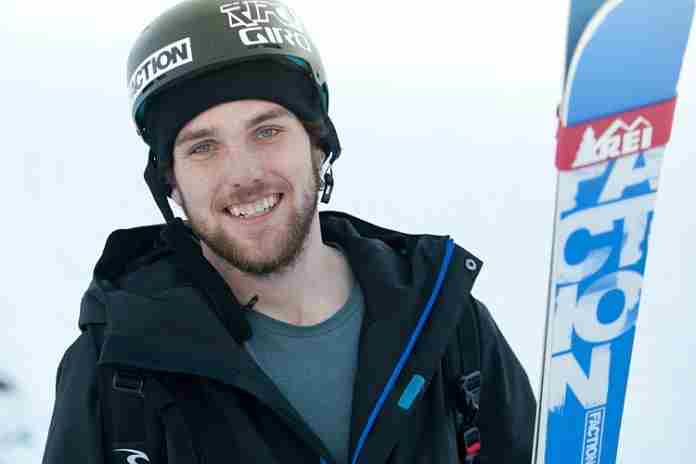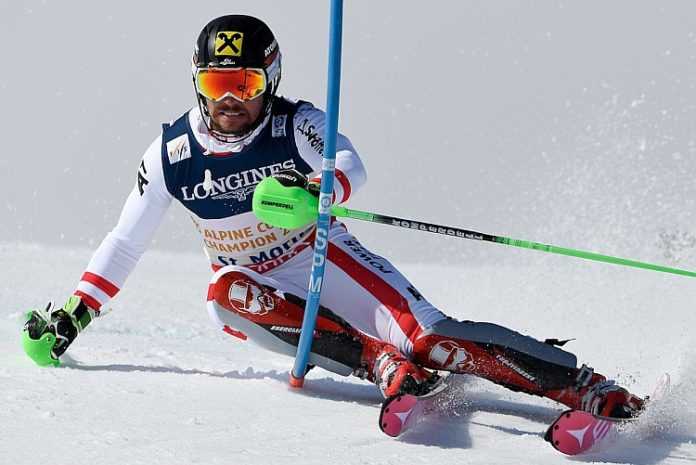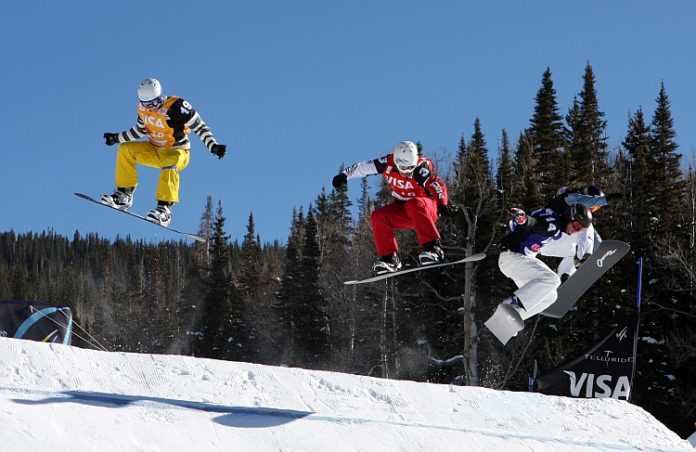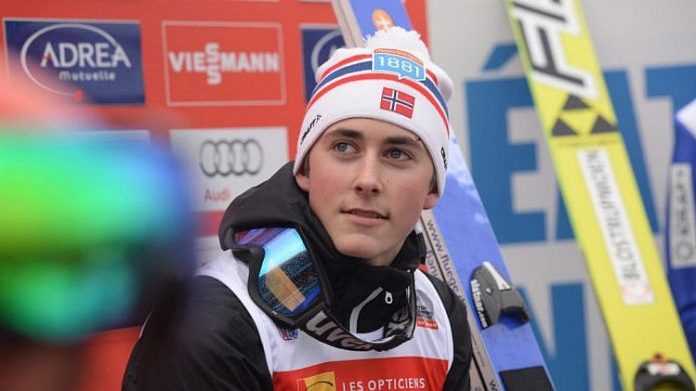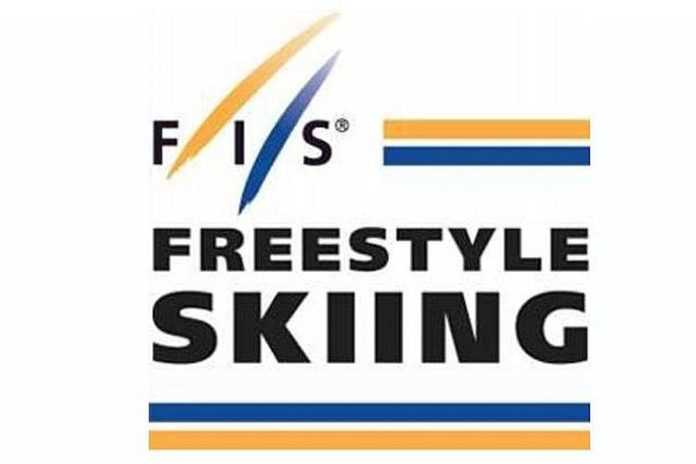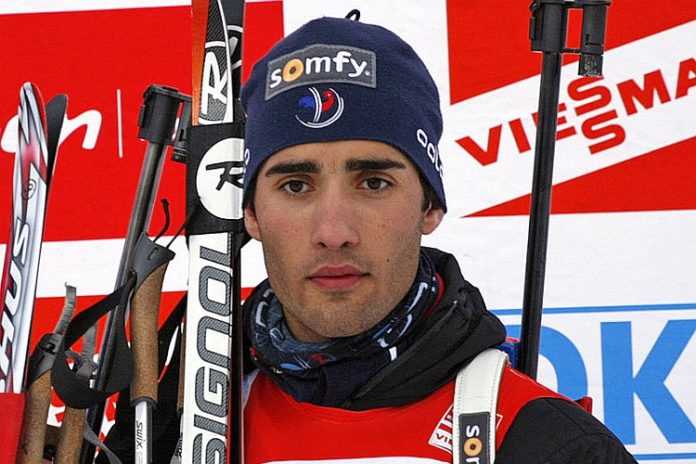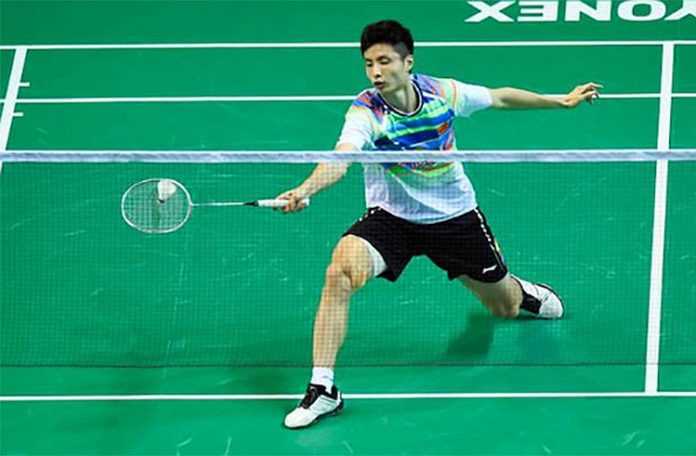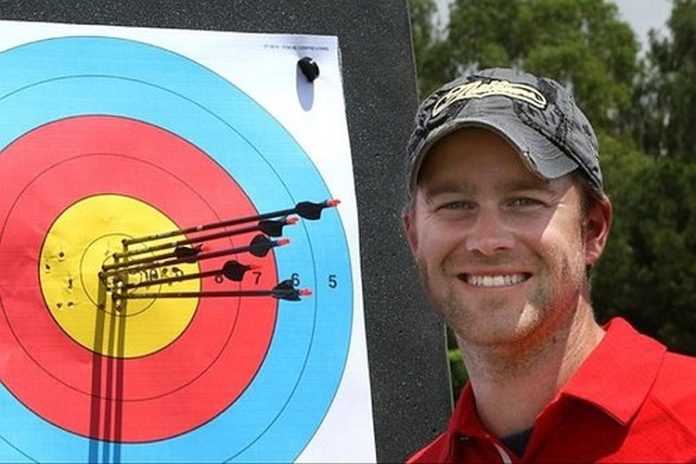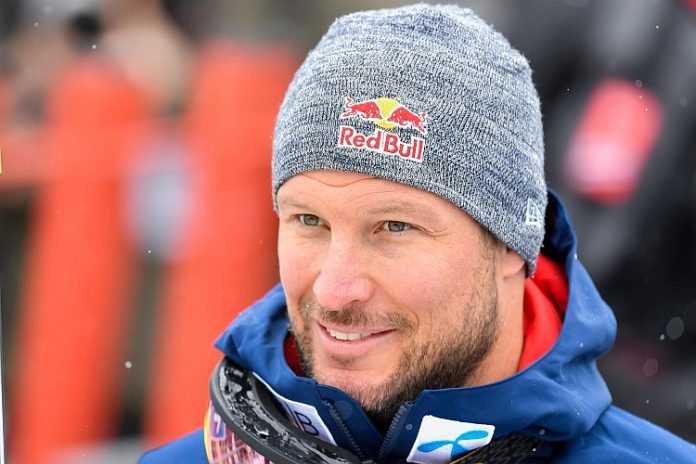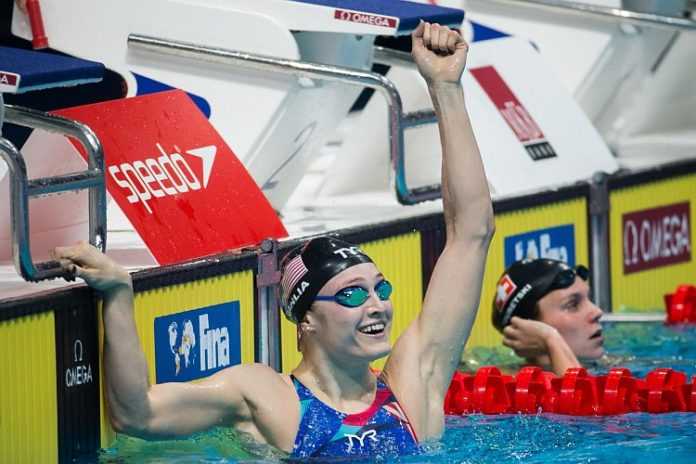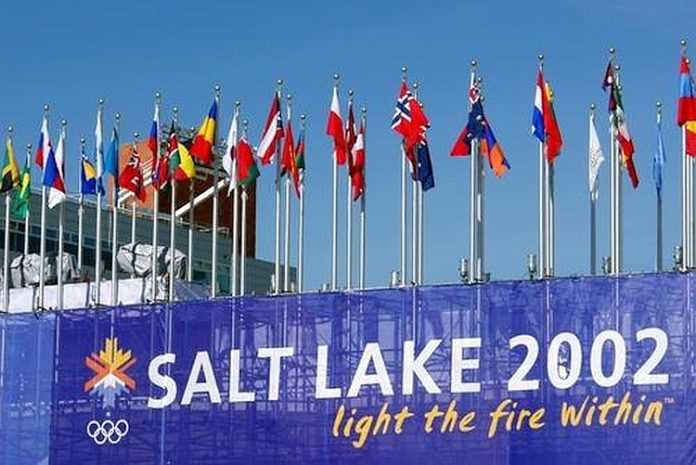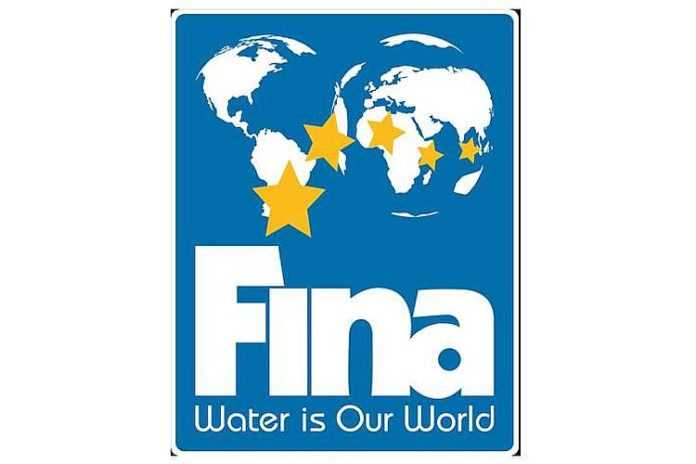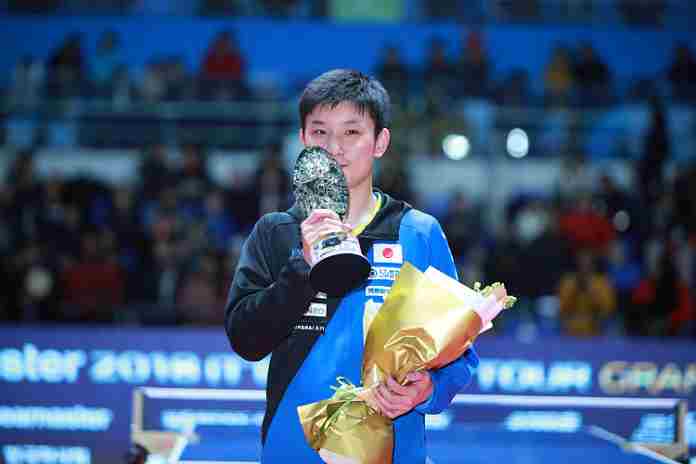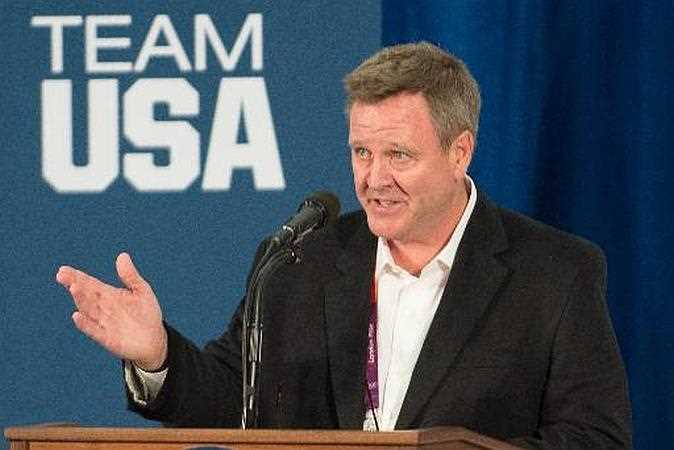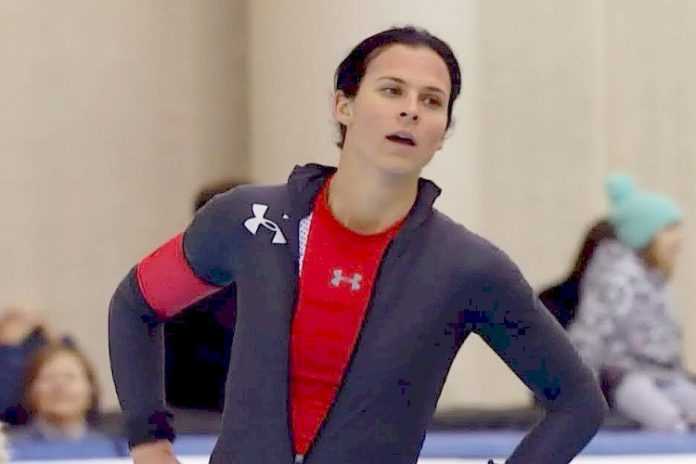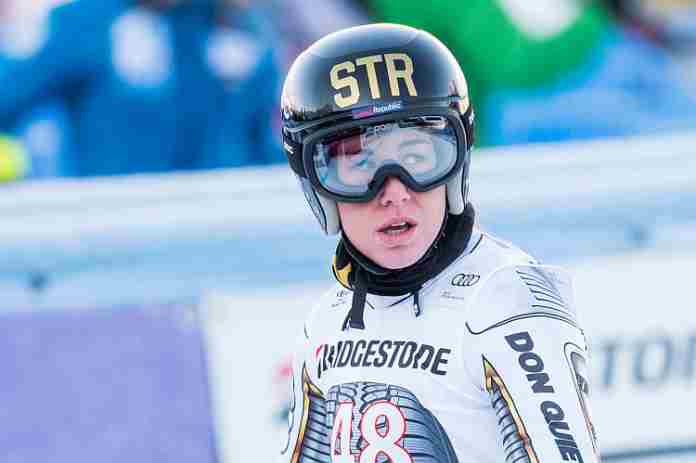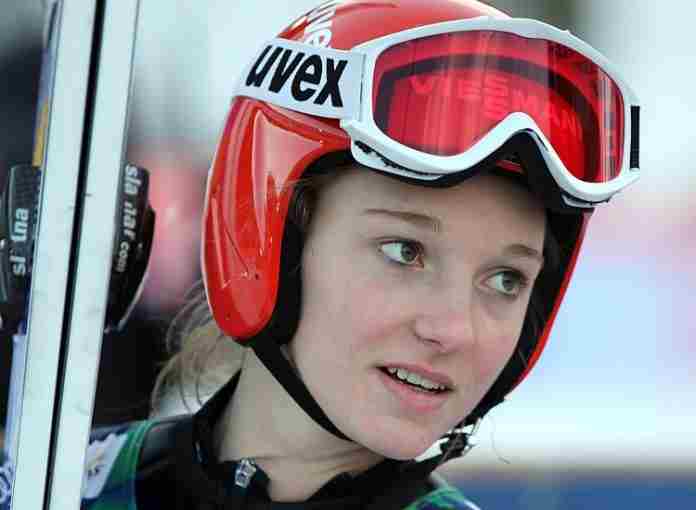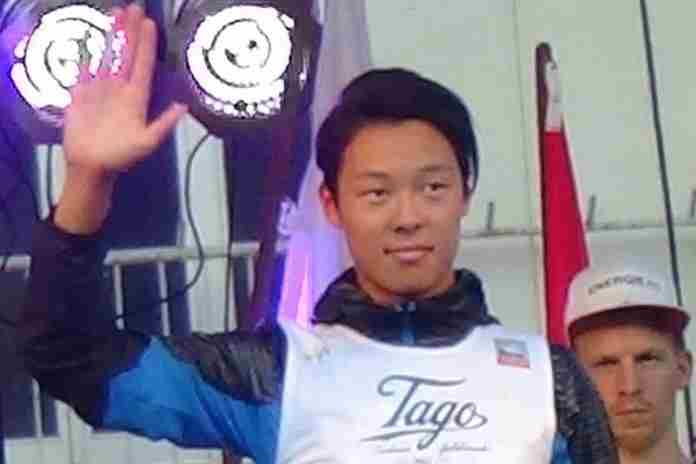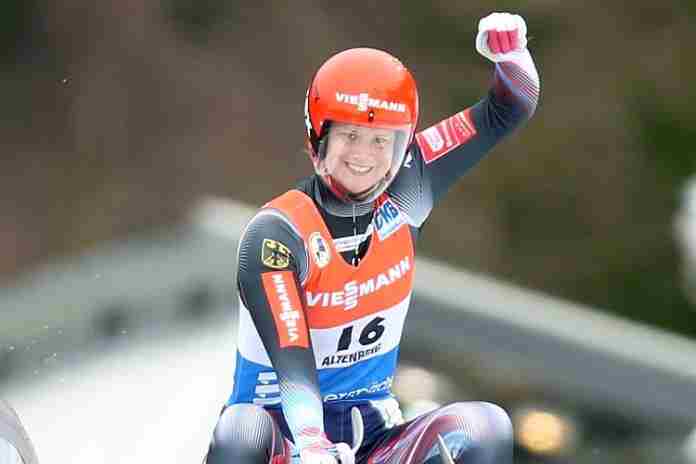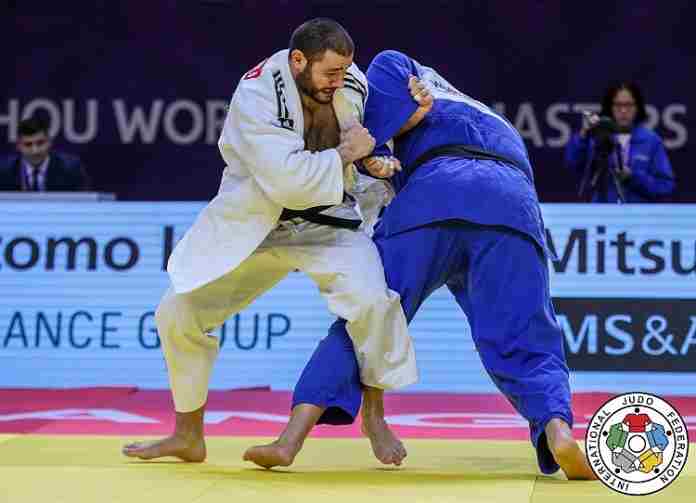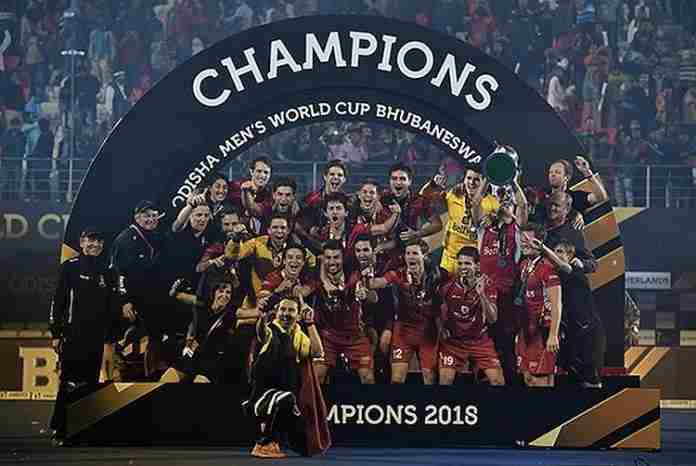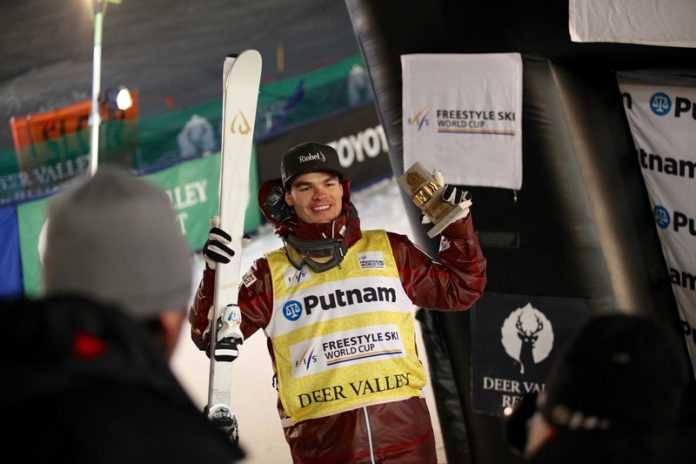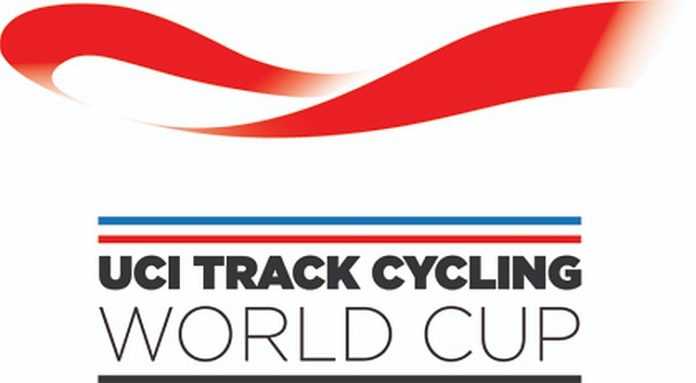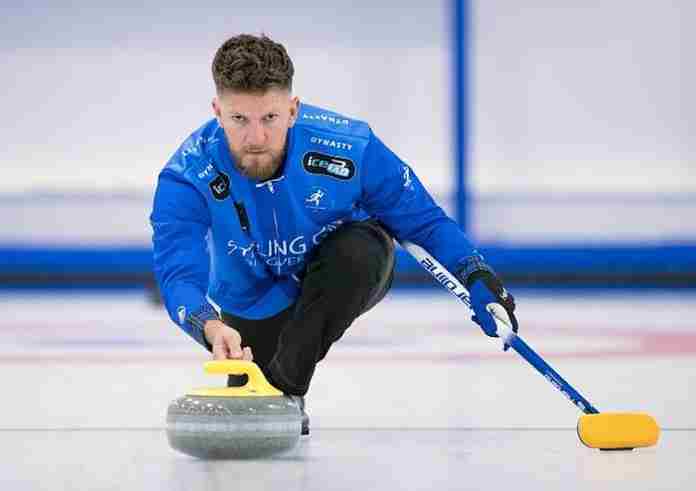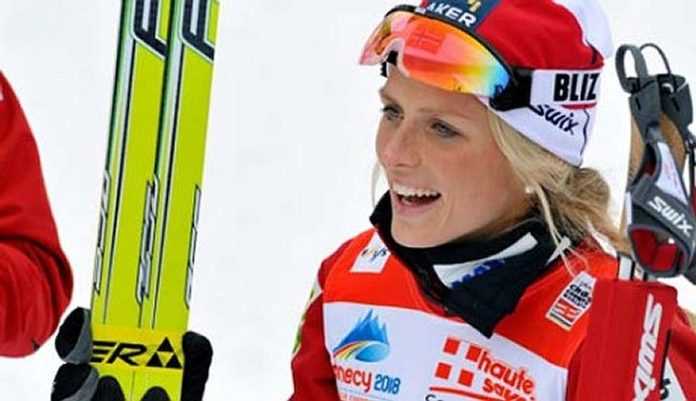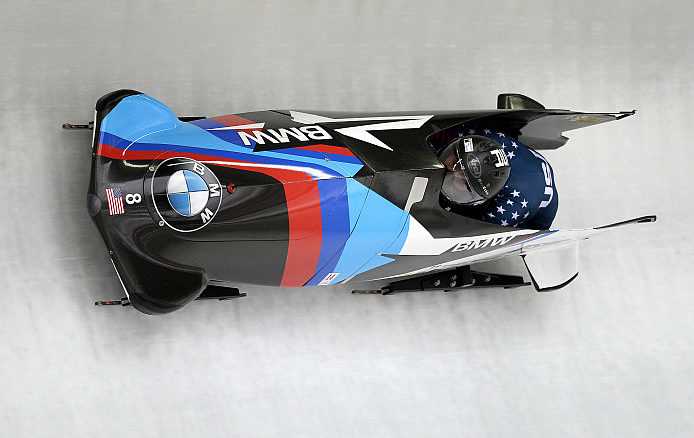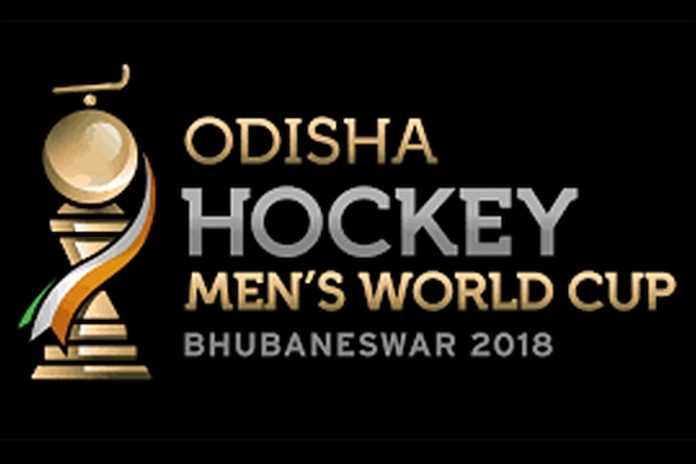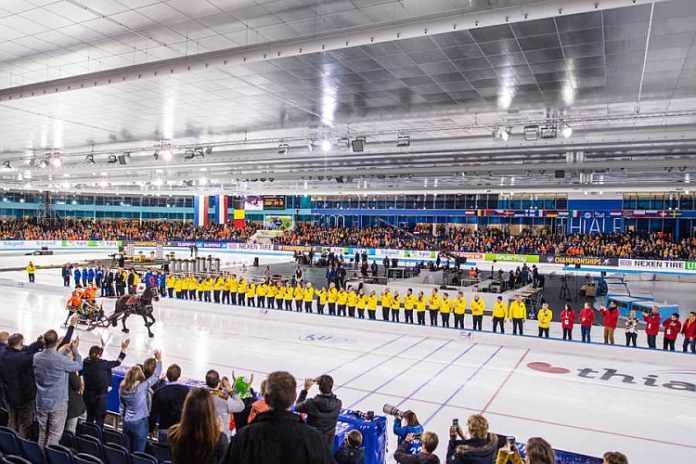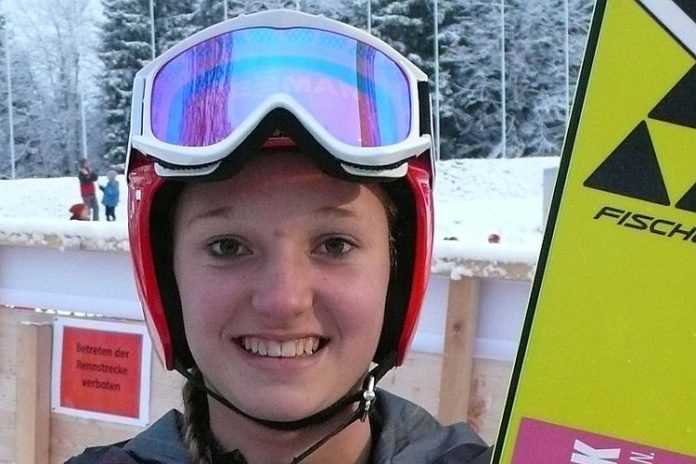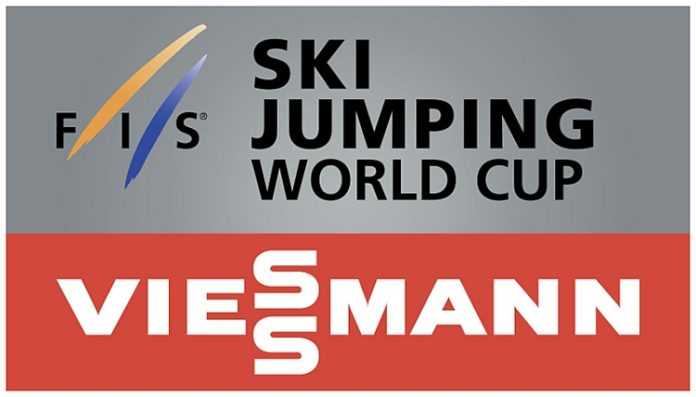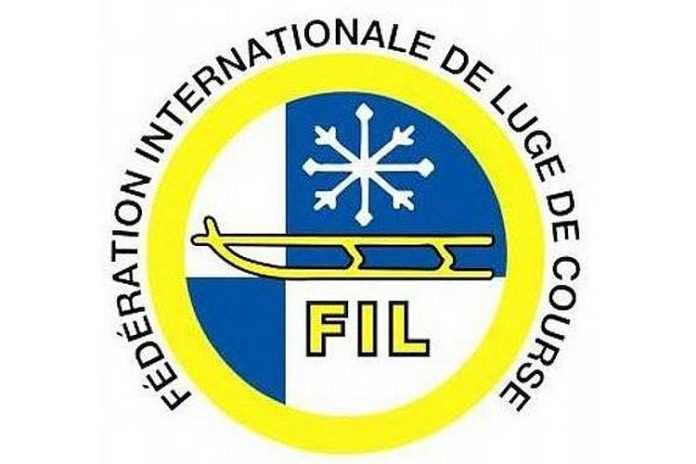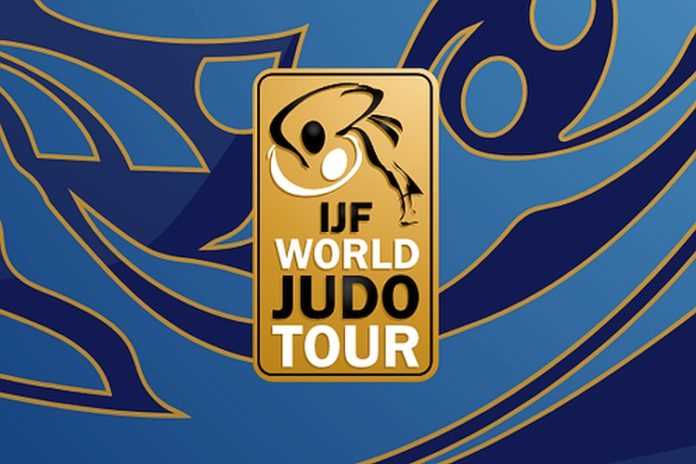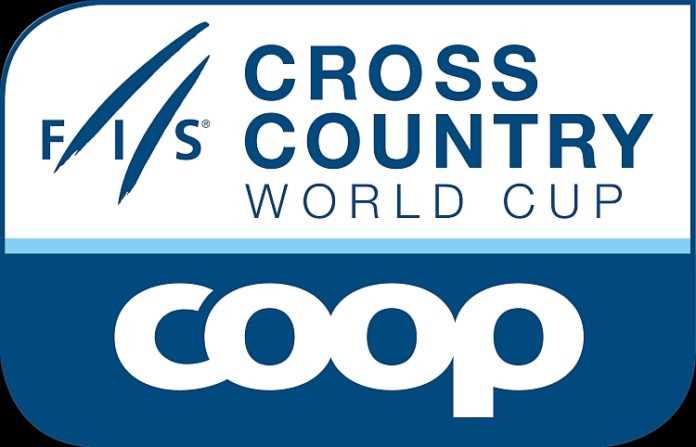In another demonstration of how dominant the United States in swimming, a powerful American team overran the rest of the world in the 14th FINA World Short-Course Championships in Hangzhou (CHN).
The American team, which did not include a number of stars, won 36 total medals, more than the combined total of runner-up Russia (14 medals) and China (13) combined. Moreover, the U.S. won 17 gold medals – out of 46 events – with Russia next with six, and then Hungary with four.
That’s even better than the U.S. did in 2016, when it won 30 medals (8-15-7) to lead the medal table, against 15 by Japan (2-2-11) and 14 by Russia (6-5-3), also across 46 events. The U.S. has now led the medal table in five straight short-course Worlds (2010-12-14-16-18); the last time the U.S. won more medals in a Short-Course Worlds was in 2004 when the meet was in Indianapolis and the American squad won 41 medals in just 40 events!
The meet, which had 930 total entrants (525 men and 405 women) saw a staggering total of 22 meet records and nine new world records:
World Records:
∙ Men’s 200 m Breaststroke: 2:00.16 Kirill Prigoda (RUS)
∙ Men’s 200 m Medley: 1:48.24 Daiya Seto (JPN)
∙ Men’s 4×50 m Freestyle: 1:21.80 United States (Dressel, Held, Conger, Chadwick)
∙ Men’s 4×100 m Freestyle: 3:30.03 United States (Dressel, Pieroni, Chadwick, Held)
∙ Men’s 4×200 m Freestyle: 6:46.81 Brazil (Melo, Scheffer, Santos, Correia)
∙ Women’s 400 m Freestyle: 3:53.92 Ariarne Titmus (AUS)
∙ Women’s 4×50 m Medley: 1:42.38 United States (Smoliga, Meili, Dahlia, Comerford)
∙ Mixed 4×50 m Freestyle: 1:27.89 United States (Dressel, Held, Comerford, Dahlia)
∙ Mixed 4×50 m Medley: 1:36.40 United States (Smoliga, Andrew, Dahlia, Dressel)
In addition, the U.S. re-wrote the American Record lists as well, setting marks in 13 events:
American Records (set in addition to the World Records above):
∙ Men’s 50 m Freestyle: 20.43 Caeleb Dressel (in Mixed 4×50 m Free final)
. Men’s 50 m Freestyle: 20.43 Dressel (in men’s 4×50 m Free final)
∙ Men’s 100 m Freestyle: 45.82 Ryan Held (in relay prelims)
. Men’s 100 m Freestyle: 45.66 Dressel (in relay final)
. Men’s 100 m freestyle: 45.62 Dressel
∙ Men’s 4×50 m Medley: 1:30.90 Murphy, Andrew, Dressel, Held
∙ Men’s 4×100 m Medley: 3:19.98 Murphy, Wilson, Dressel, Held
∙ Women’s 100 m Freestyle: 51.63 Mallory Comerford
∙ Women’s 200 m Freestyle: 1:51.81 Comerford
∙ Women’s 50 m Backstroke: 26.06 Olivia Smoliga (in semifinals)
. Women’s 50 m Backstroke: 25.88 Smoliga
∙ Women’s 100 m Backstroke: 55.47 Smoliga (in prelims)
∙ Women’s 50 m Butterfly: 24.93 Kelsi Dahlia (in semifinals)
∙ Women’s 200 m Butterfly: 2:01.73 Dahlia
∙ Women’s 200 m Medley: 2:04.62 Melanie Margalis
∙ Women’s 4×50 m Freestyle: 1:34.03 Kennedy, Comerford, Dahlia Brown
∙ Women’s 4×200 m Freestyle: 7:35.30 Smith, Comerford, Margalis, Brown
In terms of individual medals, the U.S. was tops there, too:
∙ 9:
Kelsi Dahlia (USA: 7-1-1)
Caeleb Dressel (USA: 6-3-0)
∙ 8:
Olivia Smoliga (USA: 8-0-0)
Mallory Comerford (USA: 5-2-1)
Ranomi Kromowidjojo (NED: 3-4-1)
Femke Heemskerk (NED: 0-6-2)
∙ 7:
Evgeny Rylov (RUS: 3-2-2)
Kliment Kolesnikov (RUS: 2-3-2)
∙ 6:
Ryan Murphy (USA: 3-3-0)
Vladimir Morozov (RUS: 1-4-1)
These totals were greatly inflated by the number of relays in the meet – 12 in all – and the top four Americans all won six relay medals, and Dutch stars Kromowidjojo and Heemskerk both won five medals apiece on relays.
There were also multiple champions who defended their 2016 World Short-Course titles, starting with four defenses from Hungary’s amazing Katinka Hosszu:
∙ Katinka Hosszu (HUN): Women’s 200 m Fly, 100-200-400 m Medley
∙ Cameron van den Burgh (RSA): Men’s 50 m Breast
∙ Chad le Clos (RSA): Men’s 100 m Fly
∙ Shun Wang (CHN): Men’s 200 m Medley
∙ Daiya Seto (JPN): Men’s 400 m Medley
∙ Ranomi Kromowidjojo (NED): Women’s 50 m Freestyle
∙ Alia Atkinson (JAM): Women’s 100 m Breast
Hosszu, now 29, has now won an astonishing 17 World Short-Course titles and 27 medals (after a silver in the 100 m Back!) From 2012-18.
South Africa’s van den Burgh won the 100 m Breaststroke in a meet-record time of 56.01 and then confirmed his retirement at age 30. He later won the 50 m Breast for his seventh gold medal at the Olympic (1), World (2) and World Short-Course (4) Championships. He was the 2012 Olympic Champion in the 100 Breaststroke and he won medals in championships from 2007-18.
Prize money of $2.07 million was on offer in Guangzhou: each event paid $10,000-8,000-7,000-6,000-5,000-4,000-3,000-2,000 to the top eight finishers. World records commanded an extra $15,000. Summaries:
FINA World Short-Course Championships
Hangzhou (CHN) ~ 11-16 December 2018
(Full results here)
Men
50 m Freestyle: 1. Vladimir Morozov (RUS), 20.33; 2. Caeleb Dressel (USA), 20.54; 3. Bradley Tandy (RSA), 20.94; 4. Simonas Bilis (LTU), 20.99; 5. Pawel Juraszek (POL), 21.00; 6. Cameron McEvoy (AUS), 21.02; 7. Cesar Cielo (BRA), 21.20; Ben Proud (GBR), was disqualified.
100 m Free: 1. Dressel (USA), 45.62 (American Record; old, 45.66, Dressel, 2018 [relay prelims]); 2. Morozov (RUS), 45.64; 3. Clad le Clos (RSA), 45.89; 4. Vladislav Grinev (RUS), 45.92; 5. Simonas Bilis (LTU), 46.11; 6. Mehdy Metella (FRA), 46.51; 7. tie, Katsumi Nakamura (JPN) and Blake Pieroni (USA), 46.57.
200 m Free: 1. Pieroni (USA), 1:41.49; 2. Danas Rapsys (LTU), 1:41.78; 3. Alexander Graham (AUS), 1:42.28; 4. Xinjie Ji (CHN), 1:42.31; 5. Breno Correia (BRA), 1:42.36; 6. Martin Malyutin (RUS), 1:42.46; 7. Mikhail Vekovishchev (RUS), 1:42.67; 8. Luiz Melo (BRA), 1:42.72.
400 m Free: 1. Danas Rapsys (LTU), 3:44.01 (Meet Record); 2. Henrik Christiansen (NOR), 3:36.64; 3. Gabriele Detti (ITA), 3:37.54; 4. Martin Malyutin (RUS), 3:37.75; 5. Aleksandr Krasnykh (RUS), 3:37.97; 6. Zane Grothe (USA), 3:38.99; 7. Wojciech Wojdak (POL), 3:39.22; 8. Fernando Scheffer (BRA), 3:39.40.
1,500 m Free: 1. Mykhallo Romanchuk (UKR), 14:09.14; 2. Gregorio Paltrinieri (ITA), 14:09.87; 3. Henrik Christiansen (NOR), 14:19.39; 4. David Aubry (FRA), 14:23.44; 5. Damien Joly (FRA), 14:24.00; 6. Jan Micka (CZE), 14:27.73; 7. Akos Kalmar (HUN), 14:35.94; 8. Zane Grothe (USA), 14:51.22.
50 m Backstroke: 1. Evgeny Rylov (RUS), 22.58; 2. Ryan Murphy (USA), 22.63; 3. Shane Ryan (IRL), 22.76; 4. Kliment Kolesnikov (RUS), 22.77; 5. Guilherme Guido (BRA), 22.79; 6. Simone Sabbioni (ITA), 23.26; 7. Dylan Carter (TTO), 23.44; 8. Christian Diener (GER), 23.49.
100 m Back: 1. Murphy (USA), 49.23; 2. Jiayu Xu (CHN), 49.26; 3. Kolesnikov (RUS), 49.40; 4. Mitch Larkin (AUS), 49.46; 5. Guido (BRA), 49.75; 6. Matt Grevers (USA), 50.02; 7. Diener (GER), 50.24; 8. Robert Glinta (ROU), 50.36.
200 m Back: 1. Rylov (RUS), 1:47.02; 2. Murphy (USA), 1:47.34; 3. Radoslaw Kawecki (POL), 1:48.25; 4. Larkin (AUS), 1:48.25; 5. Jacob Pebley (USA), 1:49.72; 6. Jiayu Xu (CHN), 1:49.91; 7. Ryosuke Irie (JPN), 1:50.88; 8. Hayate Matsubara (JPN), 1:51.96.
50 m Breaststroke: 1. Cameron van den Burgh (RSA), 25.41 (Meet Record); 2. Ilya Shymanovich (BLR), 25.77; 3. Felipe Lima (BRA), 25.80; 4. Kirill Prigoda (RUS), 25.83; 5. Huseyin Sakci (TUR), 25.89; 6. Joao Gomes Junior (BRA), 26.02; 7. Fabian Schwingenschlogl (GER), 26.12; 8. Oleg Kostin (RUS), 26.18.
100 m Breast: 1. van den Burgh (RSA), 56.01 (Meet Record); 2. Shymanovich (BLR), 56.10; 3. Yasuhiro Koseki (JPN), 56.13; 4. Fabio Scozzoli (ITA), 56.48; 5. Prigoda (RUS), 56.56; 6. Lizhuo Wang (CHN), 56.91; 7. Arno Kamminga (NED), 57.10; 8. Andrew Wilson (USA), 57.19.
200 m Breast: 1. Prigoda (RUS), 2:00.16 (World Record; old, 2:00.44, Marco Koch (GER), 2016); 2. Haiyang Qin (CHN), 2:01.15; 3. Marco Koch (GER), 2:01.42; 4. Koseki (JPN), 2:01.18; 5. Josh Prenot (USA), 2:03.12; 6. Mikhail Dorinov (RUS), 2:03.20; 7. Kamminga (FIN), 2:03.72; 8. Erik Persson (SWE), 2:04.15.
50 m Butterfly: 1. Nicholas Santos (BRA), 21.81 (Meet Record); 2. Chad le Clos (RSA), 21.97; 3. Dylan Carter (TTO), 22.38; 4. Marius Kusch (GER), 22.40; 5. Takeshi Kawamoto (JPN), 22.50; 6. tie, Mikhail Vekovishchev (RUS) and Takaya Yasue (JPN), 22.60; 8. Ryan Coetzee (RSA), 22.88.
100 m Fly: 1. le Clos (RSA), 48.50; 2. Caeleb Dressel (USA), 48.71; 3. Zhohao Li (CHN), 49.25; 4. Mehdy Metella (FRA), 49.45; 5. Kusch (GER), 49.50; 6. Kawamoto (JPN), 50.07; 7. Jack Conger (USA), 50.32; 8. Piero Codia (ITA), 50.71.
200 m Fly: 1. Daiya Seto (JPN), 1:48.24 (World Record; 1:48.56, Chad le Clos (RSA), 2013); 2. le Clos (RSA), 1:48.32 (also under old World Record!); 3. Li (CHN), 1:50.39; 4. Aleksandr Kharlanov (RUS), 1:50.67; 5. Zach Hartung (USA), 1:51.57; 6. Luiz Melo (BRA), 1:51.99; 7. Nic Brown (AUS), 1:52.10; 8. Antani Ivanov (BUL), 1:52.40.
100 m Medley: 1. Kliment Kolesnikov (RUS), 50.63 (Meet Record); 2. Marco Orsi (ITA), 51.03; 3. Hiromasa Fujimori (JPN), 51.53; 4. Michael Andrew (USA), 51.58; 5. Sergei Fesikov (RUS), 51.63; 6. Kenneth To (HKG), 51.88; 7. Shun Wang (CHN), 51.95; 8. Caio Pumputis (BRA), 52.28.
200 m Medley: 1. Shun Wang (CHN), 1:51.01; 2. Josh Prenot (USA), 1:52.69; 3. Fujimori (JPN), 1:52.73; 4. Mitch Larkin (AUS), 1:52.78; 5. Pumputis (BRA), 1:53.05; 6. Leonardo Coehlo Santos (BRA), 1:53.38; 7. Jan Switkowski (POL), 1:53.96; 8. Bradlee Ashby (NZL), 1:54.01.
400 m Medley: 1. Daiya Seto (JPN), 3:56.43; 2. Thomas Fraser-Holmes (AUS), 4:02.74; 3. Brandonn Almeida (BRA), 4:03.71; 4. Peter Bernek (HUN), 4:04.71; 5. Gergely Gyurta (HUN), 4:04.74; 6. Tomas Peribonio Avila (ECU), 4:06.26; 7. Tomoya Takeuchi (JPN), 4:06.99; 8. Joao Alexandre Vital (POR), 4:07.69.
4×50 m Freestyle: 1. United States (Caeleb Dressel, Ryan Held, Jack Conger, Michael Chadwick), 1:21.80 (World Record; old, 1:22.60, Russia, 2014); 2. Russia (Morozov, Sedov, Kuzmenko, Rylov), 1:22.22; 3. Italy (Condorelli, Vergani, Zazzeri, Miressi), 1:22.90; 4. Australia, 1:23.92; 5. South Africa, 1:24.14; 6. Japan, 1:24.69; 7. Germany, 1:25.54; Belarus was disqualified.
4×100 m Freestyle: 1. United States (Caeleb Dressel, Blake Pieroni, Michael Chadwick, Ryan Held), 3:03.03 (World Record; old, 3:30.30, United States, 2009; Dressel’s 45.66 lead-off is an American Record; old, 45.82, Held, in heats); 2. Russia (Grinev, Fesikov, Morozov, Kolesnikov), 3:03.11 (also under old World Record!); 3. Brazil (Santana, Chierighini, Cielo Filho, Correia), 3:05.15; 4. Italy, 3:05.20; 5. Australia, 3:06.49; 6. Japan, 3:07.87; 7. China, 3:10.55; 8. Belarus, 3:10.59.
4×200 m Freestyle: 1. Brazil (Melo, Scheffer, Santos, Correia), 6:46.81 (World Record; old, 6:49.04, Russia, 2010); 2. Russia (Malyutin, Verkovishchev, Girev, Krasnykh), 6:46.84; 3. China (Ji, Xu, Sun, Wang), 6:47.53; 4. United States (Blake Pieroni, Ryan Held, Zach Hartung, Zane Grothe), 6:49.84; 5. Australia, 6:53.05; 6. Italy, 6:55.67; 7. Portugal, 6:59.28; 8. Sweden, 6:59.35.
4×50 m Medley: 1. Russia (Kolesnikov, Kostin, Vekovishchev, Rylov), 1:30.54; 2. United States (Ryan Murphy, Michael Andrew, Caeleb Dressel, Ryan Held), 1:30.90 (American Record; old, 1:31.83, National Team, 2014); 3. Brazil (Guido, Lima, Santos, Cielo), 1:31.49; 4. Italy, 1:31.54; 5. Germany, 1:31.80; 6. Belarus, 1:32.45; 7. Japan, 1:32.83; 8. Australia, 1:33.19.
4×100 m Medley: 1. United States (Ryan Murphy, Andrew Wilson, Caeleb Dressel, Ryan Held), 3:19.98 (Meet Record; and American Record; old, 3:20.91, National Team, 2015); 2. Russia (Kolesnikov, Prigoda, Vekovishchev, Morozov), 3:20.61; 3. Japan (Irie, Koseki, Kawamoto, Nakamura), 3:21.07; 4. Brazil, 3:22.00; 5. Germany, 3:22.17; 6. Belarus, 3:24.41; 7. Lithuania, 3:24.51; 8. Australia, 3:24.65.
Women
50 m Freestyle: 1. Ranomi Kromowidjojo (NED), 23.19 (Meet Record); 2. Femke Heemskerk (NED), 23.67; 3. Etiene Medeiros (BRA), 23.76; 4. Mallory Comerford (USA), 23.86; 5. Holly Barratt (AUS), 23.92; 6. Melanie Henique (FRA), 24.01; 7. Mariia Kameneva (RUS), 24.06; 8. Madison Kennedy (USA), 24.11.
100 m Free: 1. Kromowidjojo (NED), 51.14 (Meet Record); 2. Heemskerk (NED), 51.60; 3. Comerford (USA), 51.63 (American Record; old, 51.69, Simone Manuel, 2015); 4. Michelle Coleman (SWE), 52.24; 5. Menghui Zhu (CHN), 52.40; 6. Barbora Seemanova (CZE), 52.46; 7. Lia Neal (USA), 52.50; 8. Erin Gallagher (RSA), 53.14.
200 m Free: 1. Ariarne Titmus (AUS), 1:51.38; 2. Mallory Comerford (USA), 1:51.81 (American Record; old, 1:52.52, Comerford, 2018); 3. Heemskerk (NED), 1:52.36; 4. Federica Pellegrini (ITA), 1:53.18; 5. Jianjiahe Wang (CHN), 1:53.23; 6. Coleman (SWE), 1:53.83; 7. Veronika Andrusenko (RUS), 1:54.26; 8. Seemanova (CZE), 1:54.82.
400 m Free: 1. Titmus (AUS), 3:53.92 (World Record; old, 3:53.97, Jianjiahe Wang (CHN), 2018); 2. J. Wang (CHN), 3:54.56; 3. Bingjie Li (CHN), 3:57.99; 4. Leah Smith (USA), 3:58.58; 5. Anna Egorova (RUS), 4:01.52; 6. Valeriia Salamatina (RUS), 4:02.87; 7. Sarah Kohler (GER), 4:03.28; 8. Erica Musso (ITA), 4:03.61.
800 m Free: 1. J. Wang (CHN), 8:04.35; 2. Simona Quadarella (ITA), 8:08.03; 3. L. Smith (USA), 8:08.75; 4. B. Li (CHN), 8:09.81; 5. Kohler (GER), 8:10.54; 6. Egorova (RUS), 8:12.65; 7. Haley Anderson (USA), 8:18.70; 8. Mayuko Goto (JPN), 8:22.10.
50 m Backstoke: 1. Olivia Smoliga (USA), 25.88 (American Record; old, 26.06, Smoliga, 2018 [in semifinals]); 2. Caroline Pilhatsch (AUT), 25.99; 3. Holly Barratt (AUS), 26.04; 4. Yuanhui Fu (CHN), 26.06; 5. Mathilde Cini (FRA), 26.17; 6. Miyuki Takemura (JPN), 26.30; 7. Georgia Davies (GBR), 26.31; 8. Alicja Tchorz (POL), 26.42.
100 m Backstroke: 1. Smoliga (USA), 56.19; 2. Katinka Hosszu (HUN), 59.26; 3. tie, Davies (GBR) and Minna Atherton (AUS), 56.74; 5. Kathleen Baker (USA), 56.89; 6. Emily Seebohm (AUS), 56.98; 7. Simona Kubova (CZE), 57.03; 8. Emi Moronuki (JPN), 57.18.
200 m Back: 1. Lisa Bratton (USA), 2:00.71; 2. Baker (USA), 2:00.79; 3. Seebohm (AUS), 2:01.37; 4. Hosszu (HUN), 2:01.99; 5. Margherita Panziera (ITA), 2:02.50; 6. Daria K. Ustinova (RUS), 2:02.96; 7. Sayaka Akase (JPN), 2:03.92; 8. Moronuki (JPN), 2:05.80.
50 m Breaststroke: 1. Alia Atkinson (JAM), 29.05; 2. Ruta Meilutyte (LTU), 29.38; 3. Martina Carraro (ITA), 29.59; 4. Jenna Laukkanen (FIN), 29.68; 5. Katie Meili (USA), 29.89; 6. Jessica Hansen (AUS), 30.20; 7. Fanny Lecluyse (BEL), 30.41; 8. Ida Hulkko (FIN), 30.45.
100 m Breast: 1. Atkinson (JAM), 1:03.51; 2. Meili (USA), 1:03.63; 3. Hansen (AUS), 1:04.61; 4. Carraro (ITA), 1:04.73; 5. Laukkanen (FIN), 1:04.96; 6. Jinglin Shi (CHN), 1:05.10; 7. Lecluyse (BEL), 1:05.13; 8. Kanako Watanabe (JPN), 1:05.34.
200 m Breast: 1. Annie Lazor (USA), 2:18.32; 2. Bethany Galant (USA), 2:18.62; 3. Lecluyse (BEL), 2:18.85; 4. Jingyao Yu (CHN), 2:10.20; 5. Jessica Vall (ESP), 2:19.37; 6. Shiwen Ye (CHN), 2:19.52; 7. Mariia Temnikova (RUS), 2:19.58; 8. Marina Garcia (ESP), 2:20.33.
50 m Butterfly: 1. Kromowidjojo (NED), 24.47 (Meet Record); 2. Holly Barratt (AUS), 24.80; 3. Kelsi Dahlia (USA), 24.97; 4. Melanie Henique (FRA), 25.02; 5. Maaike de Waard (NED), 25.32; 6. Yichun Wang (CHN), 25.38; 7. Haley Black (CAN), 25.75; 8. Aliena Schmidtke (GER), 25.76.
100 m Fly: 1. Dahlia (USA), 55.01; 2. Kendyl Stewart (USA), 56.22; 3. Daiene Dias (BRA), 56.31; 4. Illaria Bianchi (ITA), 56.39; 5. Elena de Liddo (ITA), 56.50; 6. Haley Black (CAN), 56.72; 7. Ai Soma (JPN), 56.76; 8. Yichun Wang (CHN), 56.96.
200 m Fly: 1. Katinka Hosszu (HUN), 2:01.60; 2. Kelsi Dahlia (USA), 2:01.73 (American Record; old, 2:02.89, Dahlia [as Kelsi Worrell], 2016); 3. Suzuka Hasegawa (JPN), 2:04.04; 4. Lara Grangeon (FRA), 2:04.91; 5. Ilaria Bianchi (ITA), 2:05.57; 6. Ana Monteiro (POR), 2:05.74; 7. Yufei Zhang (CHN), 2:05.86; 8. Nao Kobayashi (JPN), 2:06.24.
100 m Medley: 1. Hosszu (HUN), 57.26; 2. Runa Imai (JPN), 57.85; 3. Atkinson (JAM), 58.11; 4. Melanie Margalis (USA), 58.32; 5. Kathleen Baker (USA), 58.47; 6. Emily Seebohm (AUS), 58.78; 7. Jenna Laukkanen (FIN), 59.11; 8. Rika Omoto (JPN), 59.18.
200 m Medley: 1. Hosszu (HUN), 2:03.25; 2. Margalis (USA), 2:04.62 (American Record; old, 2:04.91, Caitlin Leverenz, 2011); 3. Baker (USA), 2:05.54; 4. Shiwen Ye (CHN), 2:05.79; 5. Ilaria Cusinato (ITA), 2:06.17; 6. Emily Seebohm (AUS), 2:06.80; 7. Abbey Harkin (AUS), 2:08.30; 8. Sakiko Shimizu (JPN), 2:08.41.
400 m Medley: 1. Hosszu (HUN), 4:21.40; 2. Margalis (USA), 4:25.84; 3. Fantina Lesaffre (FRA), 4:27.31; 4. Cusinato (ITA), 4:27.88; 5. Lara Grangeon (FRA), 4:29.56; 6. Shimizu (JPN), 4:31.07; 7. Catalina Corro (ESP), 4:31.63; 8. Miho Takahashi (JPN), 4:35.62.
4×50 m Freestyle: 1. United States (Madison Kennedy, Mallory Comerford, Kelsi Dahlia, Erika Brown), 1:34.03 (Meet Record and American Record; old, 1:34.61, National Team, 2014); 2. Netherlands (Kromowidjojo, Heemskerk, Busch, van Roon), 1:34.55; 3. Australia (Barratt, Seebohm, Atherton, Buchanan), 1:36.34; 4. Russia, 1:37.09; 5. Japan, 1:37.35; 6. China, 1:37.58; 7. Czech Rep., 1:38.24; 8. Germany, 1:38.70.
4×100 m Free: 1. United States (Olivia Smoliga, Lia Neal, Mallory Comerford, Kelsi Dahlia), 3:27.78; 2. Netherlands (Busch, Heemskerk, de Waard, Kromowidjojo), 3:28.02; 3. China (Zhu, Yang, Liu, Wang), 3:30.92; 4. Japan, 3:31.68; 5. Russia, 3:32.48; 6. Germany, 3:33.27; 7. Hong Kong, 3:40.25; 8. Turkey, 3:41.25.
4×200 m Free: 1. China (Li, Yang, Zhang, Wang), 7:34.08; 2. United States (Leah Smith, Mallory Comerford, Melanie Margalis, Erika Brown), 7:35.30 (American Record; old, 7:38.42, National Team, 2010); 3. Australia (Titmus, Atherton, Buchanan, Harkin), 7:36.40; 4. Russia, 7:36.64; 5. Japan, 7:42.97; 6. Italy, 7:43.18; 7. Germany, 7:46.36; 8. Austria, 7:55.93.
4×50 m Medley: 1. United States (Olivia Smoliga, Katie Meili, Kelsi Dahlia, Mallory Comerford), 1:42.38 (World Record; old, 1:43.27, United States, 2016); 2. China� (Fu, Suo, Wang, Wu), 1:44.31; 3. Netherlands (de Waard, Busch, Kromowidjojo, Heemskerk), 1:44.57; 4. Japan, 1:44.90; 5. Australia, 1:45.79; 6. Russia, 1:45.98; 7. Czech Rep., 1:46.17; 8. Italy, 1:46.44.
4×100 m Medley: 1. United States (Olivia Smoliga, Katie Meili, Kelsi Dahlia, Mallory Comerford), 3:45.58 (Meet Record); 2. China (Fu, Shi, Zhang, Zhu), 3:48.80; 3. Italy (Panziera, Carraro, di Liddo, Pellegrini), 3:51.38; 4. Japan, 3:51.81; 5. Russia, 3:53.73; 6. Germany, 3:54.14; 7. Canada, 3:58.04; Australia was disqualified.
Mixed
4×50 m Freestyle: 1. United States (Caeleb Dressel, Ryan Held, Mallory Comerford, Kelsi Dahlia), 1:27.89 (World Record; old, 1:28.39, Netherlands, 2017); 2. Netherlands (Puts, Pijnenburg, Kromowidjojo, Heemskerk), 1:28.51; 2. Russia (Morozov, Sedov, Kemaneva, Nasretdinova), 1:28.73; 4. Japan, 1:29.51; 5. Brazil, 1:29.91; 6. Australia, 1:30.09; 7. Italy, 1:30.96; 8. Finland, 1:31.23.
4×50 m Medley: 1. United States (Olivia Smoliga, Michael Andrew, Kelsi Dahlia, Caeleb Dressel), 1:36.40 (World Record; old, 1:37.17, United States, 2013); 2. Netherlands (Puts, Elzerman, Kromowidjojo, Heemskerk), 1:37.05; 3. Russia (Kolesnikov, Kostin, Nasretdinova, Kameneva), 1:37.33; 4. Japan, 1:37.67; 5. Italy, 1:38.08; 6. Germany, 1:38.35; 7. Australia, 1:38.69; 8. Finland, 1:39.38.





















